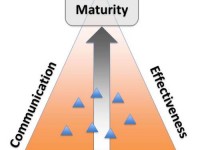Dear IDM Friend, May I invite you to attend the International Workshop on Rewiring Team Dynamics: Building Collective Intelligence in Mechelen (Belgium) from June 17th - June 19th . The way we work is changing. So is the nature of teamwork at all levels in the organization changing. The age of ‘command & control’ in teamwork is shifting towards a ‘collaborate & communicate’ approach. We all know that innovation and creativity mainly takes place in a collaborative context. Nevertheless teamwork remains for a lot of organizations a confounding mystery. Diversity is rarely used in the most effective way. Most of the team’s potential remains unlocked. Otto Laske and myself have developed an approach that reveals the principles by which we can unlock the potential of colleagues, that can release the creative potential of your organization. Building upon the Constructive Developmental Framework we have developed a set of tools both practical yet deep in wisdom. The Workshop ‘Rewiring Team Dynamics’ helps you practice ways by which to create collective intelligence and reveals the learnable art of thinking productively together. The workshop is based on a system of thought forms that help team members unravel their own resources for thinking in a... Read More...
Category: IDM News
Upcoming introductory courses, February 23 and 26, 2015
Gradually, CDF is emerging as a potent business development tool, in contrast to a coaching or assessment tool. The new course starting February 26, 2015, will demonstrate the impact of the CDF methodology on your daily organizational work, planning, decision making, and work in teams. You'll begin to understand better the concept of "requisite organization" that is an integral part of CDF. The second course, starting on February 23, 2015, goes rather into depth about your own thinking, helping you to understand the "frame of reference" based on which you think, and how you could start using more advanced thinking techniques. We will explore DTF, the Dialectical Thought Form Framework which will be mind-opening experience for you. Prior questions to me are welcome (otto@interdevelopmentals.org). See also the videos under NEWS. For managers, these courses are also available through personal hands-on mentoring centered on a personal business problem of your choice. Read More...
How to develop collaborative intelligence?
One of the new IDM initiatives is a 'Rewiring Team Dynamics' workshop which will be organized as a three day seminar in April 2015, near Brussels/Belgium. The key question is: How can we create groups that can learn from mistakes faster, more efficiently, and more consistently than competitors do?' The background of this question is the simple observation that a lot of groups systematically under-perform. They do not make good decisions and they do not solve complex problems in a collaborative way. Traditional Team Building Traditional team building interventions, which are mainly behaviorally focused, do not seem to work when team members are highly developed (especially when they are knowledge workers). The top interventions advised from a behavioral point of view are: foster constructive debate in meetings push back when consensus forms to quickly use devil's advocate thinking look for competing explanations to challenge your observations get some distance, step away, and then try again in order to recognize and interpret complex data use visual graphs or flowcharts to juxtapose the larger picture with the individual puzzle pieces reframe situations and always examine several more options use impromptu meetings when time is limited to generate more options, including unconventional choices... Read More...
Workshop in Belgium: Rewiring Team Dynamics
Over the last few months I regularly stumbled over clients struggling with the same question: 'how can we create groups that can learn from mistakes faster, more efficiently, and more consistently than competitors do?'. The background of this question is the simple observation that a lot of groups systematically underperform. They do not make good decisions and they do not solve complex problems in a collaborative way. As the saying goes, two heads are better than two. If so, then three heads should be better than two, and four better still. The belief is that different people take note of different 'parts', and if those parts are properly aggregated, they will lead the group to know more (and better) than any individual. Reality, however, teaches us that this rarely happens. Groups often fail to live up to their potential as decision making bodies. Instead of aggregating the knowledge and wisdom of their members, they end up making bigger errors than individuals would. The scientific community identified two main reasons why group errors occur. The first is that group members often receive incorrect signals from other members. The second involves reputational pressures, which lead people to silence themselves or change their views... Read More...
Obituary for Roy Bhaskar
This article is a reflection on the loss the dialectical tradition has incurred through Bhaskar’s early death. In particular, I spell out how his work contributed to CDF, and mention his utter humility as a person. Roy Bhaskar’s Premature Death: A Profound Loss for the Tradition of Dialectical Thinking Read More...
Review of De Visch’s “Mind(s) Creating Value”
J. De Visch's Leadership-- Mind(s) Creating Value J. De Visch's Leadership-- Mind(s) Creating Value Jan DeVisch continues to plow the depth of dialectical thinking to restructure and refine corporate conversations. This writer is excellently prepared for the task, since his professional career has long been focused on issues of global concern both for and regarding large organizations. Read More...
